Whenever I write about my experience of eating disorders, I make a point of saying that the healing process isn’t linear. It’s full of odd, surprising twists and turns, realizations and moments that take one by surprise.
Still, it’s natural to hope that a linear trend will emerge. After all, it’s the promise of change, of transformation, that keeps us going when the process is at its ugliest. When recovery was at its worst for me—when I was feeling the most robbed of my identity, the most enraged, the most at odds with my body—I got through it by assuring myself that it wouldn’t always be like this; one day, I thought, it would almost never feel like this anymore.
That wasn’t an empty promise. It’s exactly how things turned out, albeit with lots of ups and downs.
When I wrote this post in May, I was as strong and solid in recovery as I ever have been. In the last few weeks, body dysmorphia has reared its nasty head again, and my experience of it is nothing like it was five months ago. Then, I was able to feel the old triggers, talk about them, note their appearance with some humor and self-awareness. It all felt very grown up, very reasonable.
My experience in the last week has been completely different. The dysmorphia itself has felt different: not like a poke or a prod or a nudge, the way it was in May, but more like the dysmorphia I remember from years ago: hot and angry. Loud. Distracting.
I’m feeling things I haven’t felt in years: waking up in the morning with the sensation that I’m trapped in my skin, wanting to claw my way out. Avoiding my own reflection in mirrors. Certainty that my body is a mistake, something that went wrong a long time ago and will always feel wrong. I’m handling it, but it’s unnerving. I’d started to believe that all of this was behind me.
Why now? I’m not sure, but I have some guesses: a new schedule, loss of my routines, being tested and evaluated and sized up by authority figures more regularly than I have since my post-bacc years. Change, nerves, shame, worry—in other words, the familiar triggers.
I’ve tried to let the discomfort of the last few days give me insight into how I respond now, versus how I did in the past. What have I learned? How much deeper is my capacity for self-compassion? The answer is that it’s a lot deeper, and the evidence is the fact that I haven’t restricted food at all since this began or let it enter into my eating habits.
But recognizing my more mature capacity for self-care isn’t actually making this experience less painful. Right now, my primary feeling is resentment that I can’t access my old recourses. Even if there was any part of me that wanted to eat less now, I couldn’t. Food is too important to me. The difference between now and then, I realize, is that I want food much more badly than I want control. This is growth, but it can feel like failure.
On Friday, I found myself at my mom’s place, telling her all of this, probably in greater detail and with more honesty than I’ve ever been able to share with her. “But honey,” she said, “I know you don’t want to go back to where you were. You need your strength.”
How to explain to her—to anyone—that the old ways so often felt like strength—more strength than I’ve ever had? That I do want to turn back the clock sometimes, even if I can’t and won’t? “You don’t understand,” I blubbered. “Back then was probably the only time I’ve ever really felt right in my body.”
I don’t think that’s true. But it felt true in the moment. I’m glad I said it and let it go.
In some ways, the timing of all of this has been unfortunate. I’m on my feet more than usual with my new work, which means I’m hungrier than usual and eating more than usual. It wouldn’t feel like a big deal were I not at odds with my body, but I am, so it does. In my class on Thursday night we practiced the nutrition focused physical exam. It wasn’t an ideal time to have my triceps pinched and belly prodded.
As usual, though, what feels like inopportune or unfair timing may actually be the opposite. Each day at work, I cross paths with people who have experienced dramatic shifts in their capacity to eat. Some have dysphagia, others have lost their appetites from illness or medication. Some are tube fed, and may never take in food by mouth again.
What must this be like? I can’t begin to know or understand, because my only experience of decreased food intake has been a result of my disorder, not a question of necessity. I know that it has never been a choice, but I can recognize the difference and give thanks—the deepest kind of thanks—that eating hasn’t always been easy for me, but it has always been possible.
On Friday, my mom admitted surprise at hearing how badly I felt. “You’ve just come so far,” she said. I know I have. I know that I’ve worked hard to create and protect my recovery. I know that everything is different now. I know that I’ve transmuted a lot of struggle into a relationship with food that’s beautiful, creative, and special.
But that relationship isn’t only beautiful, creative, and special. It’s also messy and complicated. It might always be messy and complicated. There may always be weeks like this, when my relationship with food feels more like a burden than a gift. It’s difficult to accept this paradox. I want to be either a success story, or I want to feel like I used to feel: powerful and in control, even if I wasn’t. But a major part of my recovery has been developing a capacity to handle ambiguity and complexity, to acknowledge realities that can’t be neatly categorized. The very fact of my struggling this week is one of those.
Before I left her place, my mom gave me the sweetest and gentlest word of encouragement that she’s ever given me about body stuff. “Eat your delicious food, Gena,” she said. “Make your recipes.”
Today, I woke up. I made a good breakfast, and later on a good lunch. I’m doing all of the usual batch cooking, so that I have sensible and nourishing things to eat this week. I’ll keep talking about this spell of dysmorphia in therapy, doing the work, sitting with my feelings, being honest. I may hide myself under a few extra layers or baggy garments while I’m at it, but if that’s as far as old behaviors go, that’s pretty good. Another dimension of recovery—one I’m only just getting acquainted with—is to struggle while continuing to put one foot in front of the other, calmly and without discouragement.
In the spirit of making recipes, some of my favorites from the past week. And some good articles, too.
Recipes
My vegan sandwich crush of the week: Gina’s awesome, plant-based pea pesto grilled cheese.
I know what bread-y thing will be a part of my Thanksgiving this year! Eva’s beautifully fluffy, whole wheat dinner rolls.
Deryn and I are on the same page, since I’ve been working on a new hash recipe. I’m loving her easy vegan breakfast skillet and will definitely make it with Field Roast, my favorite vegan sausage.
If vegan chicken parm isn’t comforting enough, here it is served over a beautiful bowl of penne 🙂 A comfort food fest from Plant Power Couple.
Finally, more comfort: Erin’s creamy, dreamy vegan broccoli cheese soup.
Reads
1. A fascinating look at why the phytonutrients in plants are beneficial for us, while growing research suggests that antioxidant supplementation may not be.
2. Heartache isn’t only a manner of speech: more research is emerging on the link between emotional distress and heart disease.
3. Another look at the health ramifications of stress, this time focusing on mitochondrial DNA and telomere shortening.
4. More evidence that plant meats are a sustainable as well as compassionate choice. (I still need to try the Beyond Burger!)
5. An important, informative article on enhancing diversity within the dietetics profession. It gave me a lot to think about—including a helpful reminder to always check, acknowledge, and address my own biases.
It’s the start of a new week, and I’m entering it with an open mind and optimistic heart. Wishing you lightness, too. I’ll be back with a tasty new slow cooker recipe in a couple days.
xo
You might also like
A couple weeks ago, a reader passed along Carrie Arnold’s insightful article into treatment of chronic, adult anorexia. It’s been a long time since any reading material about EDs has brought up so much emotion for me. One reason may be that much of what I read about anorexia is focused on teens and young adults. I was eleven when I became anorexic for the first time, which means that the disease and its relapses shaped my adolescence and early adulthood. With each…
A few weeks ago, one of my readers sent me a link to Steph Davis’ post “Love Dogs.” Ostensibly it’s the story of how Davis lost one companion animal and found another, but it’s more than that. It’s a sweet, moving reflection on the boundlessness of love. Davis’ story begins with a description of the bond she formed with Fletch, the quiet and self-sufficient dog she’d adopted from the brother of a friend. Davis and Fletch were both uprooted when they met, and they…
Happy Sunday, everyone. This weekend has been marked by celebratory occasions, including my good friend Ethan’s birthday yesterday and Steven’s and my 16-month anniversary today (yes, we still count the months). These things, coupled with work for a few new clients, have helped the weekend to fly by so far. No weekend is too busy, though, for a little weekend reading! To begin with, I’m totally smitten by the idea of these savory chickpea dumplings in a fragrant, curry tomato sauce, courtesy of…
I can’t believe it’s already June—it seems as though last August was only yesterday, and I was staring down the long road of the dietetic internship. Everyone assured me that the year would fly by, and in the aggregate it has, though some of the rotations have felt endless. My current rotation is one of those, which makes the DI finish line of late July feel farther away than it is. The only way out is through, so until this rotation is behind…

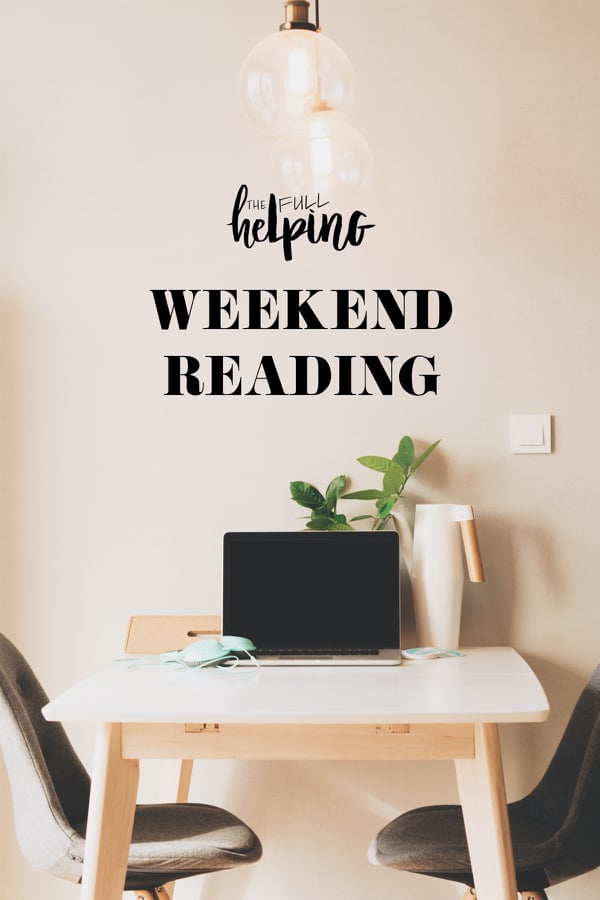
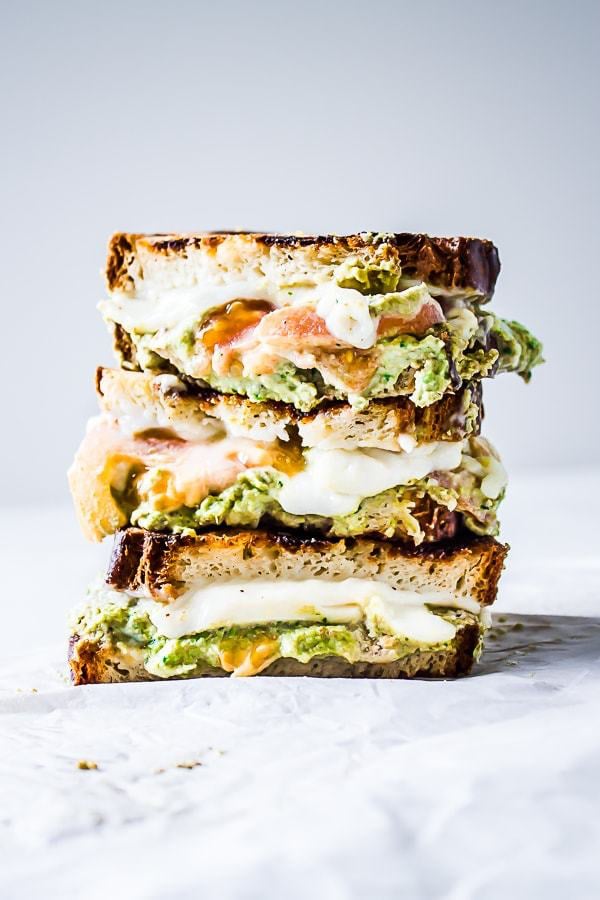
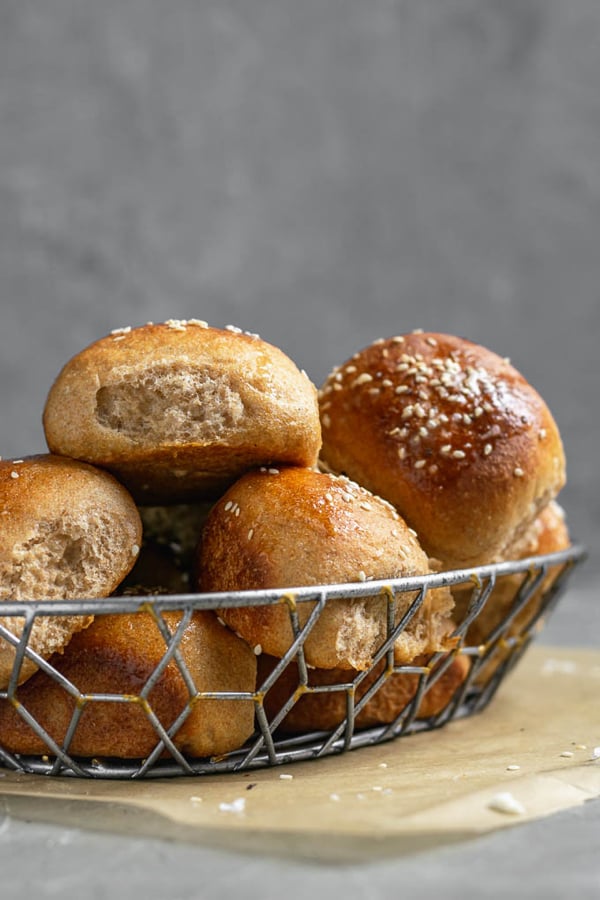
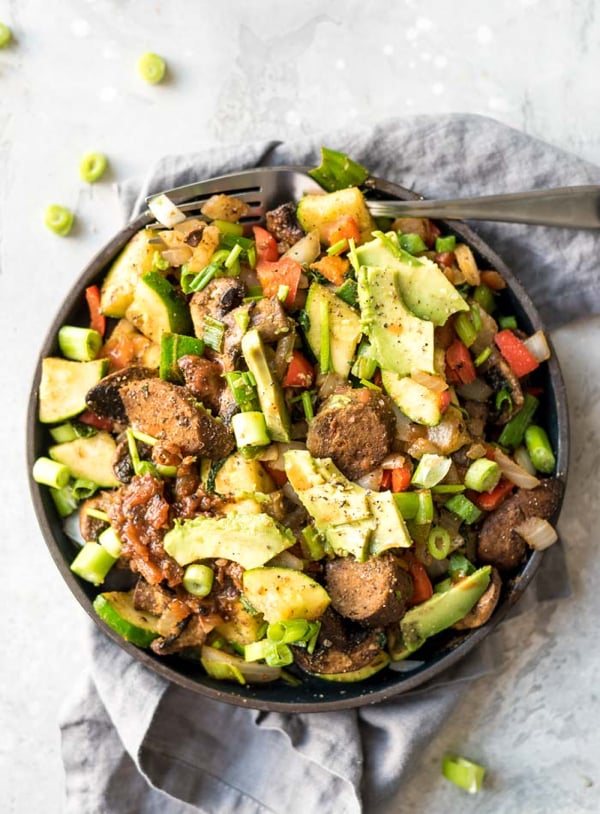
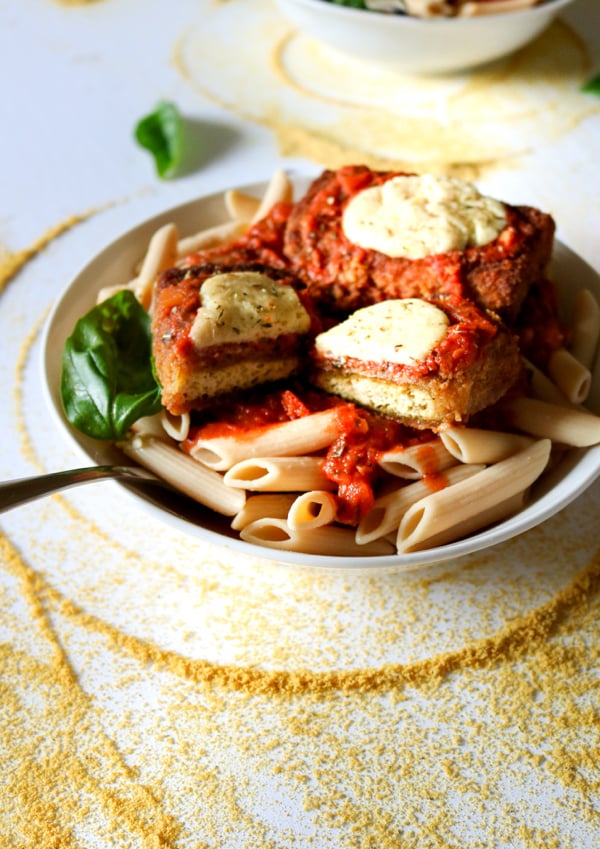
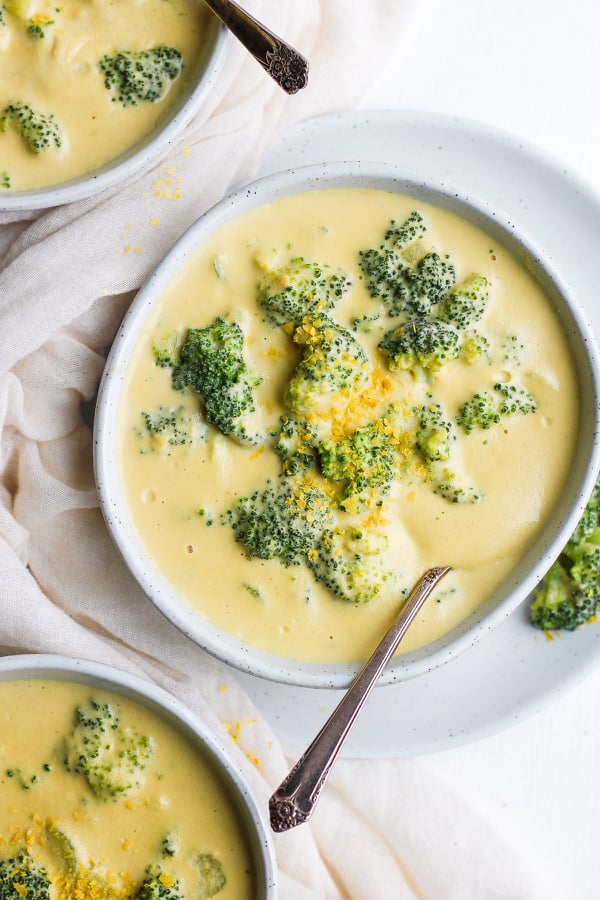
Leave a Comment
Gena, I resonate with your post, just as so many of the other people who have commented above do, too. For me, the most difficult — but also the most enlightening — part of the process of ‘recovery’ and ‘wellness’ has been coming to the understanding that, in fact, recovery and wellness sometimes do involve doing exactly what you describe: putting one foot in front of the other despite the struggle. It’s natural to want not to struggle, but it’s actually NOT natural NOT to struggle. (Apologies for the awkward phrasing!) Thank you, as always, for the voice in which you write your posts, which is not just open and honest but also compassionate, both towards yourself and others. Rebecca x
Gena, I’ve read your weekend reading posts for so long and have always been deeply touched by your sincerity, openness, and ability to convey powerful experiences so beautifully. I don’t have a bona fide eating disorder, but I do have anxiety (distantly related, I would think) … and I always find something that touches me personally in your writing. So thank you. I’m wishing you all the peace and comfort and joy to be had right now.
Gena, you are so eloquent even in your pain – I hope writing through it helps. I just wanted to say I identify with everything you write. I quite regularly have a full-body ‘what have I done?!?’ shudder when I look in a mirror. I feel like you describe maybe once a week. I’m 2 years at a healthy weight now and I too remember all the fantasies from when i was sicker looking forward, to a perfect carefree life. Sometimes I feel that all my worst nightmares from that time of what recovery might look like have come true, this is everything I dreaded and avoided. And yet. I carry on. I don’t have that strength but also the aggression towards myself and my loved ones has ebbed, I’m not consumed by a desire to hurt others and myself, I can live with my feelings about my body and know that they will change and enjoy (or just eat) food regardless
I’m sorry to hear you are going through this but you sound like you are handling it well. I know it’s hard. Sending hugs!
I have a lot of thoughts about “diversity” in the dietetics field. The fact that we have to complete an unpaid internship, which you have to do countless hours of unpaid volunteering just to have a real shot at getting matched to or accepted into (depending on your program), and now they are adding a masters requirement on top of that…. the entire training path is truly built around middle to upper-class income students whose parents will support them while they volunteer and study for years. If you don’t have that support, you can take out (lots of) loans, but when you finally finish and are out making $50k a year as an RD, will it be worth it? What if you are a single parent and can’t commit to a full time program, much less the volunteering and “experiences” required to get into internship? What if you have to spend every free second working extra jobs that will actually pay your bills and your tuition when you’re a part time student? What if you aren’t lucky enough to have those jobs be in the nutrition field, since many nutrition-related part time jobs are unpaid or low-pay? It’s so prohibitive for all but a small class of people who have the exact right circumstances. I can’t stand these diversity articles as I feel they don’t acknowledge any of this.
Thank you for sharing, I’m sorry that you have to fight this battle- but know that I am praying for you. I don’t understand your particular battle, but I do understand that in this world we WILL have trouble and I mean on my faith to help me fight mine. I pray the same for you. Xo Thank you for sharing my Pea Pesto Grilled Cheese Sandwich!
Gena,
As always, a beautifully aware and sensitive post. I don’t know that we are ever finished with anything. We have growth spurts and setbacks, circle back to something. I think many of us eventually get to a point where some old stuff just can’t hurt us anymore. We won’t let it. And the part that is heartening and reassuring is that we acquire ways of solving problems and dealing with things along the way so that when we find ourselves back in a bad situation that we thought we conquered, we have new ways of dealing with old problems. It can feel like a setback I know. And I am not sure I would want to have my biceps and belly pinched at anytime. Yikes! Very exposing.
I am so excited to look at the recipes and articles this week as I go about my business. Good luck this week with your work. You are going to be great!
Libby
Sending love and support through this tough time. I can relate strongly, and I know how hard it is and how hard it is to explain. Thank you for sharing it with us. xoxo
I wish you peace and joy in your physical body and soul. I felt discomfort while reading your post as I continue this day in day out year in and year out exhausting issue. From intuitive eating, food freedom, restrictive eating, etc. It is all consuming and life stealing. Maybe I will wake up one morning and I will not think about food and weight from the minute I open my eyes. Many many years of this and all I think makes sense is plant based, minimally processed and not overeat. Hoping one day to be more consistent with not overeating and to forgive and love myself. Love to you Gena
I identify with all that you feel in this post so much. When I am stressed or ashamed or depressed or feeling unworthy, I miss my eating disorder so much. And somehow, the feelings are compounded by the fact that even if I wanted to go back to my old behaviors (and to be honest, I do sometimes, or at least a messy part of me does), I simply am no longer good at starving myself. It’s scary when I realize I am still capable of longing for the comfort and security I found in those behaviors. Thanks as always for posting. You make me feel like I make sense, or at least like I am not alone, and for that, I am grateful.
Gosh, I get this post so much…I feel that it’s very common to doubt our selves and need that perceived sense of control and strength when we’re under stress, when we’re in something new, getting used to something…and being able to control a small thing offers an immediate benefit (a sense of calm – even just a distraction from our real/root worry). No long term solution, but the immediate habit, satisfied, gives us that short little jolt of safety. I do it often in varying degrees but I’m more cognizant of what’s happening so I can turn it off again, or at least dim the light! We “get better” or heal or however we describe the process when we can recognize with increasing efficiency, like it sounds you are, that we are neither happier nor safer in our skins with our control habits taking over, and we’re less ourselves with the crooked thinking – it takes up so much energy!! I think your posts are interesting and highly relatable even with different (non ED) circumstances to work with. Truly, we’re all unique but all of us have these buttons. While I may be clumsy with words and phrasing, I believe that we get more effective at our confusing “human-being” all the time, if we keep trying and turning the knots about…and hearing other people’s stories of the process is good for us all. So keep up your great work!! There are many walking with you! 🙂 And thanks, too, for the wonderful recipes, thoughtful reading suggestions, etc. This is a favorite blog of mine for a number of reasons.
So grateful for your honesty and truth. It’s not easy and it isn’t supposed to be.
Gena, this resonated so strongly with me. I also think of myself as very much recovered, but a combination of work stress and a new living situation have made me crave the sense of control that restrictive eating used to give me. You write that “[t]he difference between now and then, I realize, is that I want food much more badly than I want control. This is growth, but it can feel like failure,” and that is *exactly* what I’m feeling right now. It’s a strange thing, really, to feel ashamed and frustrated that I lack the twisted willpower to restrict my eating habits again – it’s a thing that deserves celebration, but it feels like a character flaw. I, too, am hiding in my baggy sweatshirt these days 🙂 Anyway, it’s really nice to hear I’m not alone in that, and I’m sending you good wishes over the internet <3